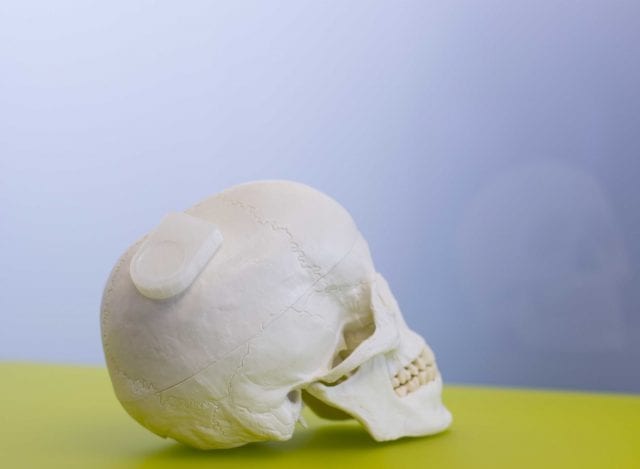
Who is responsible if a brain-controlled robot drops a baby?
As brain-controlled robots enter everyday life, an article published in Science states that now is the time to take action and put in place guidelines that ensure the safe and beneficial use of direct brain-machine interaction.
Accountability, responsibility, privacy and security are all key when considering ethical dimensions of this emerging field.
If a semi-autonomous robot did not have a reliable control or override mechanism, a person might be considered negligent if they used it to pick up a baby, but not for other less risky activities. The authors propose that any semi-autonomous system should include a form of veto control – an emergency stop – to help overcome some of the inherent weaknesses of direct brain-machine interaction.
Professor John Donoghue, Director of the Wyss Center for Bio and Neuroengineering in Geneva, Switzerland, and co-author of the paper, said: “Although we still don’t fully understand how the brain works, we are moving closer to being able to reliably decode certain brain signals. We shouldn’t be complacent about what this could mean for society. We must carefully consider the consequences of living alongside semi-intelligent brain-controlled machines and we should be ready with mechanisms to ensure their safe and ethical use.”
“We don’t want to overstate the risks nor build false hope for those who could benefit from neurotechnology. Our aim is to ensure that appropriate legislation keeps pace with this rapidly progressing field.”
Protecting biological data recorded by brain-machine interfaces (BMIs) is another area of concern. Security solutions should include data encryption, information hiding and network security. Guidelines for patient data protection already exist for clinical studies but these standards differ across countries and may not apply as rigorously to purely human laboratory research.
Professor Niels Birbaumer, Senior Research Fellow at the Wyss Center in Geneva (formerly at University of Tübingen, Germany), and co-author of the paper, said: “The protection of sensitive neuronal data from people with complete paralysis who use a BMI as their only means of communication, is particularly important. Successful calibration of their BMI depends on brain responses to personal questions provided by the family (for example, “Your daughter’s name is Emily?”). Strict data protection must be applied to all people involved, this includes protecting the personal information asked in questions as well as the protection of neuronal data to ensure the device functions correctly.”
The possibility of ‘brainjacking’ – the malicious manipulation of brain implants – is a serious consideration say the authors. While BMI systems to restore movement or communication to paralysed people do not initially seem an appealing target, this could depend on the status of the user – a paralysed politician, for example, might be at increased risk of a malicious attack as brain readout improves.
Learn more:Who is responsible if a brain-controlled robot drops a baby?
The Latest on: Neuroethics
[google_news title=”” keyword=”Neuroethics” num_posts=”10″ blurb_length=”0″ show_thumb=”left”]- What Colorado’s new law means for brain-wave privacy in the Neuralink eraon April 23, 2024 at 8:57 am
Under Colorado's new law, the same privacy measures that are extended to facial recognition software now apply to brainwave data.
- Neuroethics of aDBS Systems Targeting Neuropsychiatric and Movement Disorderson March 14, 2024 at 12:01 pm
Many of the features that make aDBS promising may exacerbate some of the ethical, legal, and social (“neuroethics”) concerns that have been raised about conventional open-loop DBS (e.g. dehumanization ...
- Albert Gnaegi Center for Health Care Ethicson March 3, 2024 at 11:16 pm
Past speakers include professors, physicians and graduate students who have discussed topics like head transplants, disability, neuroethics/moral enhancements, and much more. If you are interested in ...
- The Neuroethics of Memoryon August 29, 2023 at 10:52 am
Holmen, Sebastian Jon 2023. Ought the State Use Non-Consensual Treatment to Restore Trial Competence?. Res Publica, Vol. 29, Issue. 1, p. 111.
- Course Descriptionson June 15, 2023 at 4:53 am
HCE 4280: Controversies in Neuroethics Neuroethics was born of necessity to grapple with the ethical dimensions of advances in neuroscience. This course takes an interdisciplinary approach to diverse ...
- Psychology Todayon January 5, 2021 at 10:13 am
Dr. Chatterjee is a founding member of the Board of Governors of the Neuroethics Society, the past President of the International Association of Empirical Aesthetics, and the past President of the ...
- Pediatric Deep Brain Stimulation: Neuroethics and Decision Makingon December 18, 2020 at 6:46 am
The long-term goal of this study is to promote the responsible use of neurotechnologies in children by empirically examining pressing neuroethics issues and decisional and informational needs of using ...
- Neues Online-Buch: Addiction Neuroethicson August 12, 2020 at 7:31 pm
Research increasingly suggests that addiction has a genetic and neurobiological basis, but efforts to translate research into effective clinical treatments and social policy needs to be informed by ...
- Neuroethics: Ethical Issues in Research with Neural Devices with Humanson March 13, 2019 at 10:20 am
Developing new diagnostic and therapeutic tools for brain disorders is an ethical imperative and conducting human research with neural devices is a key step towards achieving that goal. Conducting ...
- Neuroethics: An Essential Partner for Neuroscienceon March 13, 2019 at 10:00 am
Neuroethics is essential for the success of the NIH BRAIN Initiative, and for neuroscience research more broadly, because it enables advance consideration of the ethical, legal, and societal ...
via Google News and Bing News









